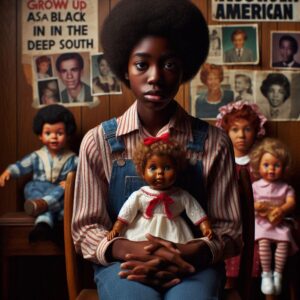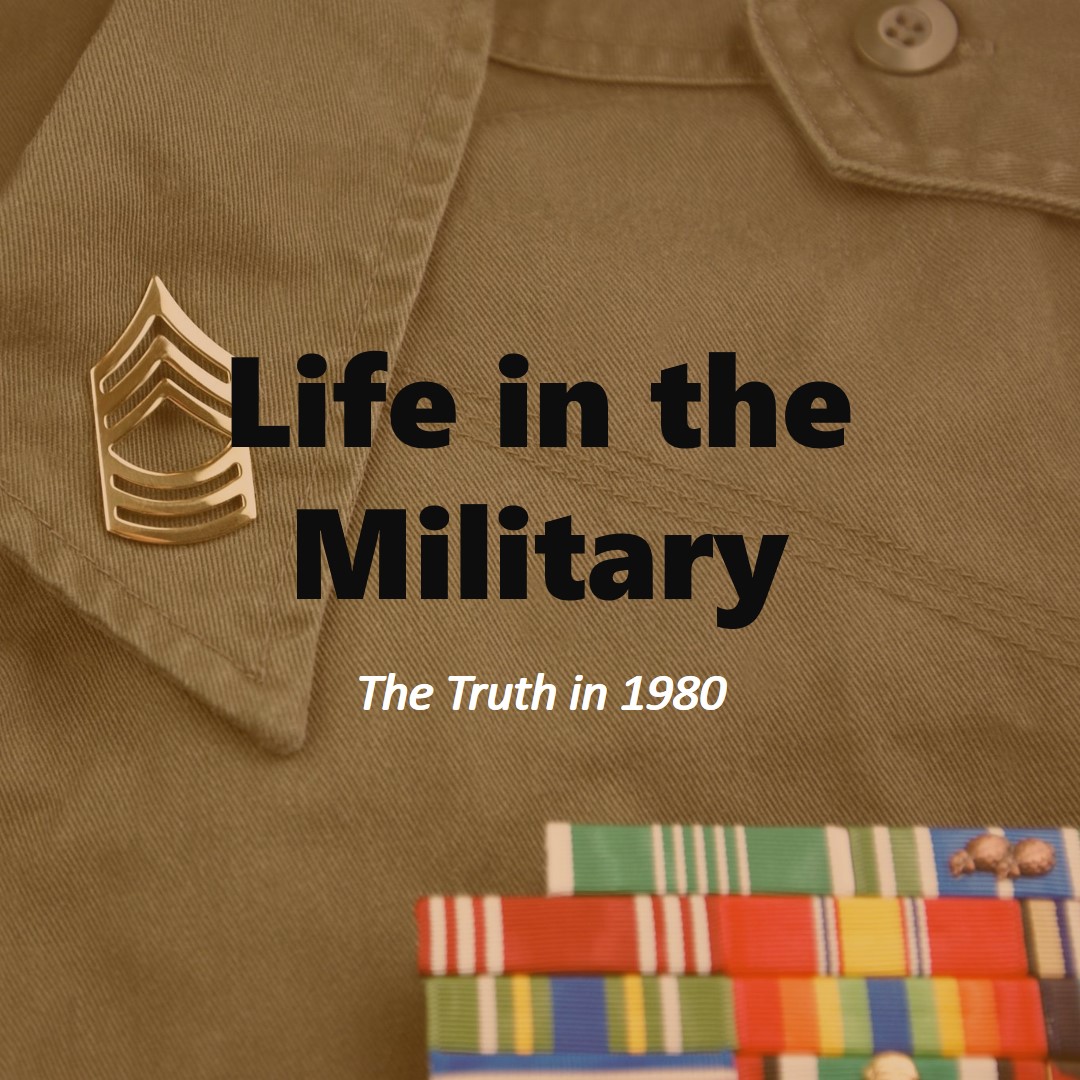
The Truth About Life in the Military in 1980, Kitzengen, Germany

K Tyler
The author describes their experiences as an artilleryman, describing their daily routines and the importance of supporting both armor and infantry. They mention the value of music and the diverse ethnic backgrounds they faced in Europe. They mention the AFN Armed Forces Network, stereo centers, and the Army’s Deferred Payment Program (DPP), which eventually spread to other aspects of military life. The author describes their experience in the military, where they were exposed to a diverse range of music genres, including rock, pop, R&B, jazz, country, and western. They were often referred to as “cruits” or “FNG” (F*** New Guy), and were often assigned “ridiculous” tasks to complete. The author’s experience highlights the importance of es·prit de corps (i-ˌsprē-də-ˈkȯr) the military, as it often led to a sense of belonging and pride in one’s military unit. The author transitioned from being a cruit to PVT Tyler after participating in the “game”.
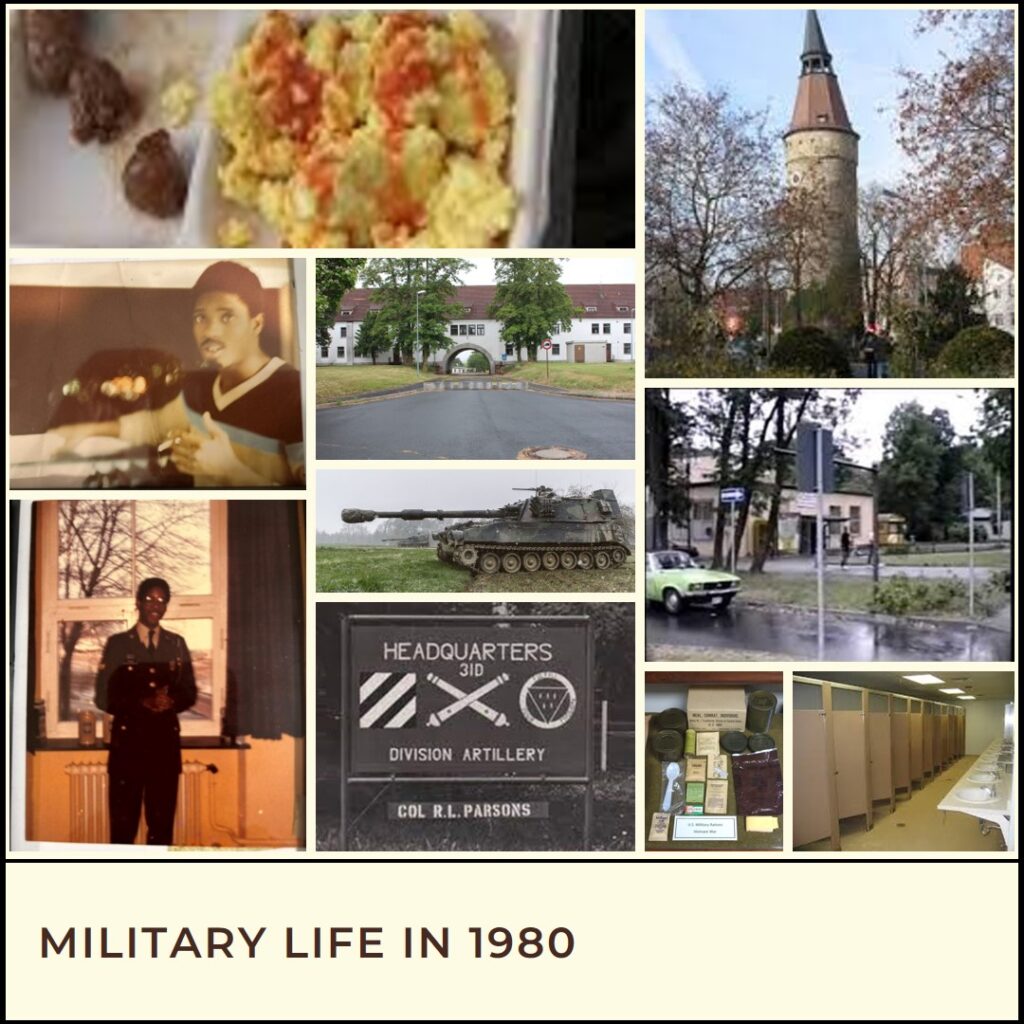
We had a unit brimming with the most intriguing personalities. I was under the impression that “music appreciation” was our reaction to spending weeks and months in the “field” on a quarterly basis. ‘In the field’ means away from your base camp.
(“Dictionary.com | Meanings and Definitions of English Words”)
Common field problems
FTX -For training, military forces use coordinated field training exercises, or “FTX.” Military simulations use training fields, bombing ranges, and even closed-off places that are normally available to the public instead of training grounds or military schools. Exercise in the field. (“Field training exercise”)
STX-Situational Training Exercises (STX) are short, scenario-based, mission-oriented, constrained exercises that help people improve at one group job, related duties, or battle drills. An STX typically consists of several group jobs linked to a realistic military operation. Freeplay is sometimes available. Workers use STX for training and testing, particularly to maintain their proficiency. Army service schools create STXs for ARTEP mission training plans. -(Pike)
CPX refers to a command-post exercise that involves leaders and their staff, as well as communications within and between participating headquarters. On the other hand, exercise study refers to a war game, map exercise, set of lectures, discussion group, or operational analysis. (“The goal of NATO exercises”)
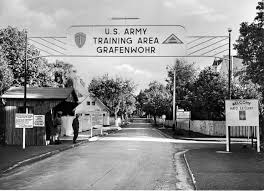




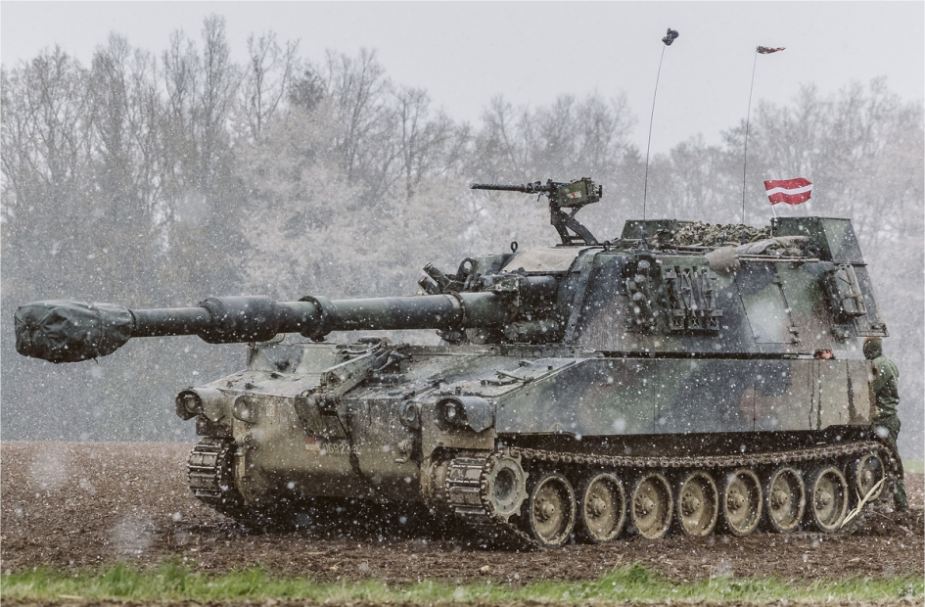
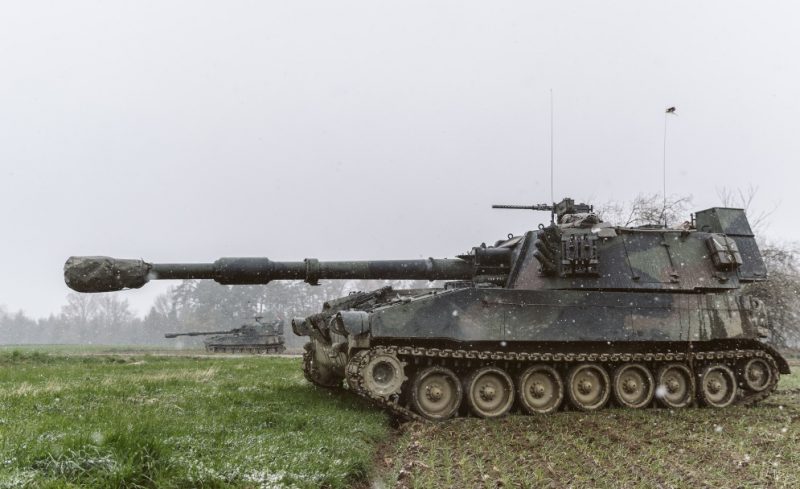

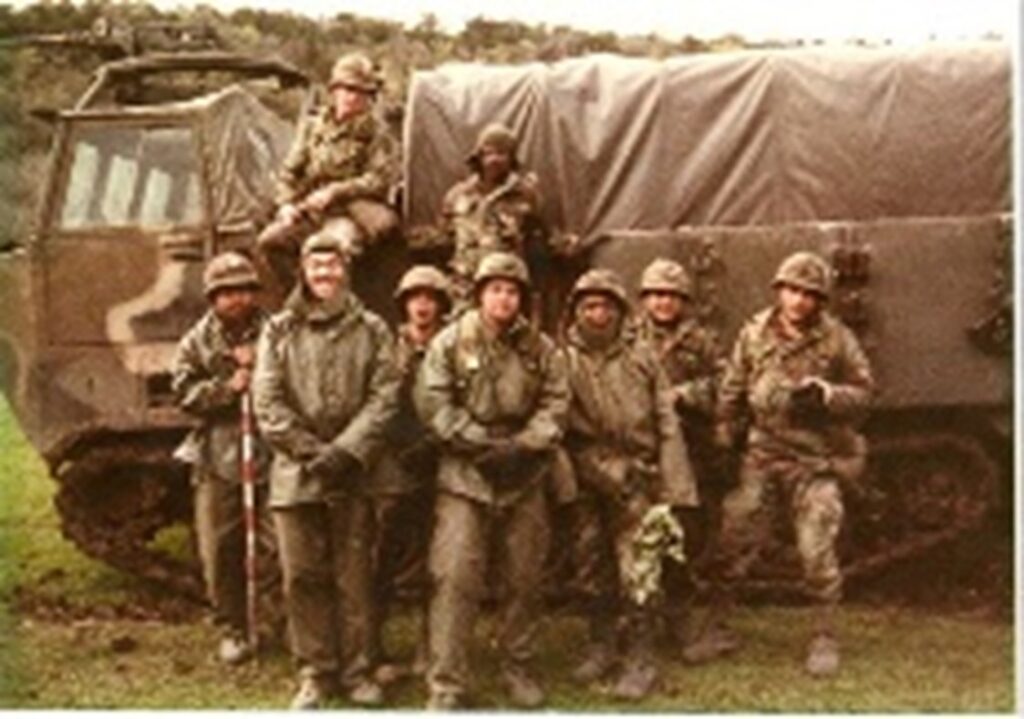

You might be doing maneuvers or a small unit exercise. This is something that I find difficult to comprehend and understand now. Because we were members of the artillery, we were required to perform double duty. While we were on the field, we provided support for both the armor and the infantry. In my mind, one occurrence stands out, and that is all of the field exercises that we would put ourselves through. In one week, we would participate in an FTX, then we would go to Hoenfield’s range for a gunnery exercise, then we would go to Wildflecken, Germany, for table shooting, and finally, we would have our semiannual Grafenwöhr activity. As an artilleryman, I devoted approximately seventy percent of my time to the field. As a result, the average field artilleryman’s time away from the field was the best time of his life. Every day was a festivity, each evening a party, and each weekend a thrilling journey. It was in this place that I first became aware of the value of excellent music.
It was challenging to be a young man of African descent living in Europe because of the many obstacles that I faced. Participants in a military unit were required to live in quarters (barracks) with individuals from diverse ethnic backgrounds. Since our line of work requires us to know people or lose their lives as a result of our errors, I believe that we were the perfect representatives of peace when it came to issues concerning racial relations. Whether in times of war or peace, we remained steadfast. Our mutual love of music and our shared belief in God continued to connect us in several ways. We were constantly in the presence of music thanks to the AFN Armed Forces Network, numerous United Service Organization performances, and frequent concert tours by artists like Kool and the Gang, Queen, and Abba, among others. At the time, our station in Europe allowed us to access the only reliable radio broadcast: the AFN Armed Forces Network. I was aware of one of the world’s first stereo centers, and the Army offered loans to customers to help them buy equipment from these companies. This was the first time that I can recall the United States Army giving credit to soldiers; eventually, it spread to other aspects of military life, such as the hospital, the commissary, the clothes and sales store, and any other outlet that was located on an army station. Congress passed the Deferred Payment Program (DPP) in 1979, but it was only available on overseas exchanges. This was intended to protect service members from unscrupulous lenders who might establish themselves outside the gates. In 1992, the introduction of the DPP to the CONUS led to its transformation into the Military Star card, which debuted in 2000. The article “#FlashbackFriday: 1986—The Exchange Begins Accepting Credit Cards” details this change. These conditions encouraged people to accept and appreciate music from a wide variety of genres.
I was able to move from one room to another, from one floor to another, while listening to the sounds of rock, pop, R&B, jazz, country, and western music, as well as the recently emerging sounds of rap music. I felt as though I was residing in a city that regularly hosted numerous music events, where I could always discover fresh music. This is because most new music started in Europe before reaching the US. As we endeavored to gather every new release, a significant number of soldiers developed a passion for collecting. I recall individuals who possessed collections of music that easily surpassed one thousand to two thousand dollars in value. Learning the various styles of music was like attending school; it was a continuous process. We started off with the Hard Rock guys, a pleasant group of people who enjoyed having a wonderful time and talking about their music. They played this type of music around the clock, but they were always playing these songs. There were two distinct groups of hard rock boys: those who played heavy rock and those who played light rock. To the best of their abilities, this group sponsored “FTA” and “short” themes. It goes without saying that these are the individuals who were typically drinking beer and throwing parties outside of their usual duty hours. Members of this group educated me on smoking hashish in the barracks. Next, there were the R&B boys, who were the epitome of the 1970s decade in every conceivable way. We are referring to Motown, Philadelphia, soulful, and romantic sounds.
Not only did these guys have a wide variety of smoking materials, ranging from marijuana to hashish, but they also always kept a case of fine liquor on hand. Since I wasn’t aware of the cocaine and crank, I didn’t want to be around them. The men in question were professionals from the battery, known as “spit and polish” soldiers. Both in terms of their military garb and their overall appearance, they were meticulous and always kept a neat appearance. They heavily starched their cotton uniforms to produce that remarkably sharp and crisp appearance, demonstrating that many people were starch experts. During this period, we received the OD Green Sateen Uniform, a uniform that Starch greatly admired. Iron, starch, and a little patience could transform anyone into a super soldier. The soldiers took enormous pride in their appearance, meticulously pressing every crease and fold. This attention to detail not only reflected their professionalism but also instilled a sense of discipline and pride within the unit. A significant number of these guys were classified as either “lifers” or “shortimers.” Extroverts, on the other hand, were the most successful members of the group, and they followed their own rules when they carried out their duties. These individuals were the experts who frequently served as instructors to newly enlisted soldiers, or “cruits.” These soldiers fully understood the political and human aspects of soldiering. They simply loved excellent music, and in essence, all music is excellent music. These were the people who played a wide variety of music without regard for what other people thought; they simply loved music.
There is an unwritten rule in the military about being the new guy. You are the new man, so everyone wants to break you in at work and play. You are the most well-known soldier, yet you remain unknown to others. In 1979, the 1/76th FA of the 3rd Infantry Division referred to you as a “cruit,” also known as a recruit, and referred to you as an “FNG” (F*** New Guy). Lifers and short-timers constantly inundated you with tasks, assigning you regular missions like locating “grid squares” in the motor pool, obtaining chem light batteries from the supply sergeant, or asking the Platoon Sergeant, also known as “smoke,” for a “prick E7” or “PRC-E7.” You had two options when it came to this type of hazing: either you could embrace it and instantly join the crew, or you could reject it and become an outsider, staying a cruit until your promotion. However, I participated in the game for 4-6 months, underwent a training exercise at Grafenwöhr, and subsequently transitioned from being a cruit to PVT Tyler.
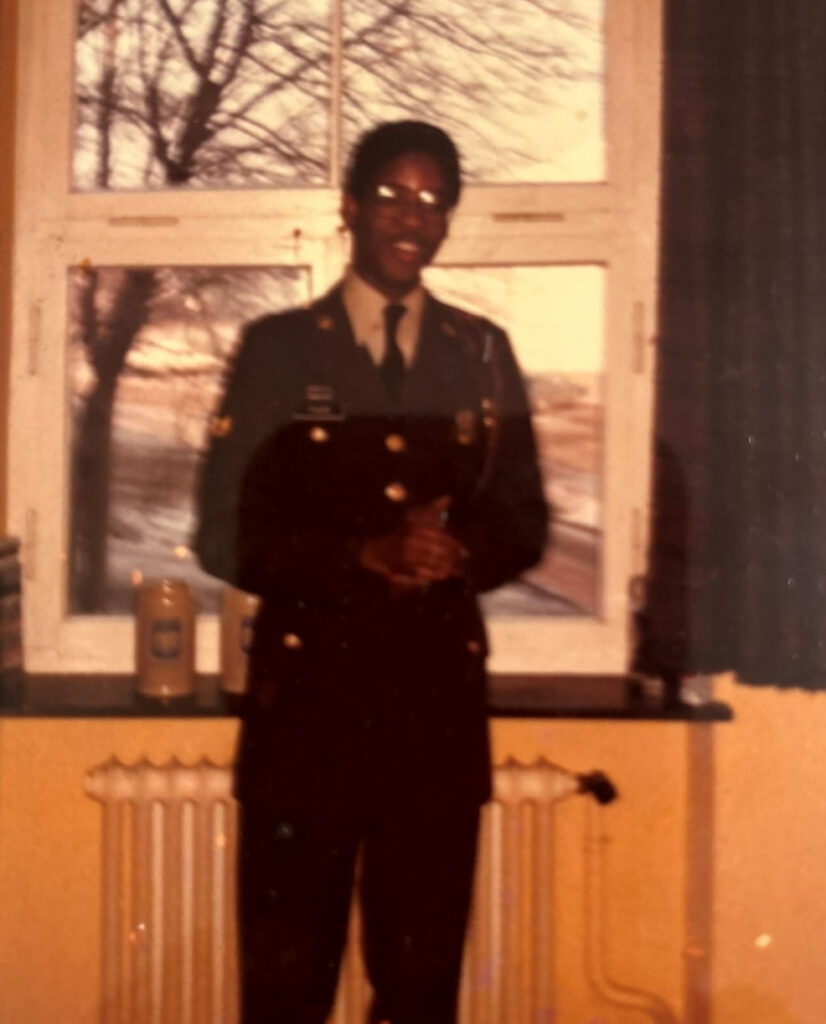
That is when I discovered the truth about military life, where there is always another battle against the rules. Among the most devoted groups I have ever come across, “smokers” are my personal favorites. These people carried out the entire operation covertly, employing a strategy so impressive that even our most esteemed intelligence agencies would be in awe. It’s possible that each unit will be equally skilled at concealing your “smoking” habits, whether you’re switching batteries, companies, or troops. My memory of being able to navigate the barracks corridors and locate each and every room where they smoked hashish is still fresh in my mind. According to my estimation, approximately thirty percent of our battery smoked hashish. Given that I had only smoked marijuana once before joining the military, you might consider me a novice. It was the hipsters who were there. These individuals, who hosted the most impressive parties and/or had the most impressive stereos, garnered the most attention on the scene. Living in Germany during the early 1980s heightened our homesickness, but we were fortunate to have access to the Stereo Center on Harvey Barracks, something even our American friends did not have. They were operating out of various military bases across Europe. At the beginning of the 1980s, this stood out as the most successful music store to which you could apply your Deferred Payment Program (DPP). We witnessed men devoting a significant portion of their paychecks to purchasing stereo equipment, albums, and later, in 1981, VCR and Blue Ray movies, which gained significant popularity in Europe.

All of the albums, stereo equipment, audio equipment, and anything else that is associated with music are in their possession. We would purchase songs at home before their release in Europe and the United States. (Continental United States) This meant that anyone who owned a stereo was, in essence, a collector, as they had collected the entire genre of music. Because you could literally wander from room to room and never find the same thing, every Friday and Saturday night was a party. This was the case everywhere you went. Every single room had its own unique atmosphere and aura of mystery. It was a music lover’s paradise, with each room offering a different experience and vibe. The excitement of discovering new music and sharing it with friends made every gathering unforgettable. Contrary to public opinion, soldiers loved watching soap operas. Almost the entire battalion watched General Hospital with Luke, Laura, and the Quartermaines during lunch breaks. The drama and suspense of the storylines provided a much-needed escape from the realities of military life. It was a bonding experience for soldiers, as they eagerly anticipated each new episode and discussed the latest plot twists together.
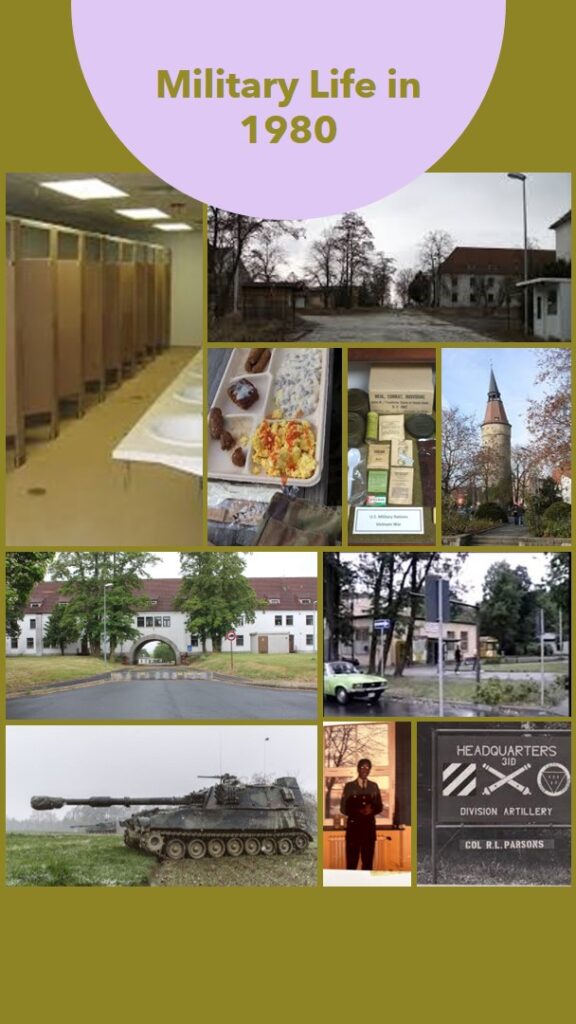
We were most proud of our accomplishments in the realm of sports. We always played football, and we had a profoundly serious post-squad that dominated both interdivisional and post-rivalries. I wasn’t a particularly talented basketball player, but we always played football in every game. The football field, located behind the post theater, was directly across from the basketball court. Even though there was a pool, I do not recall there being a sauna or a steam room available. The gym and leisure facility were popular base hangouts after duty hours. There was competition on the divisional level where we participated in track and field events against other military nations. In 1980, our team placed fifth overall with a squad of seven, with most of us pulling double duty by participating in at least three or four events over the course of the day-long international competition.

During my early 1980s tenure in the U.S. Army, the Family and Morale, Welfare, and Recreation Center (MWR) in Germany proved to be an invaluable asset. Programs and services help soldiers be ready and strong, enabling the army to respond to the world. The recreation center provided a wide range of support and recreation services to military families, aiming to enhance their quality of life and cater to the needs, interests, and responsibilities of all members of the Army community. Phone service was available at the recreation center, which also featured a respectable videocassette recorder (VCR) library and a sizeable music collection. They also feature a sizeable collection of musical instruments that you could play in soundproof rooms, which was ideal for those who were learning to play or were perfecting their craft. The recreation center also had a variety of board games and puzzles available for those looking for a more low-key activity. Additionally, the facility offered fitness classes and sports equipment for those wanting to stay active during their downtime. At every site around the world, staff from Family and MWR work hard to provide a wide range of services and programs. These include leisure, sports, entertainment, travel, and programs for families, kids, and teens. The Army remains prepared as the family and MWR care for the individuals serving and ensure the country’s safety.
One example is lying on a warm, white sand beach with the soft ocean waves caressing your skin. Another is whitewater rafting on the Mein River, and still another is skiing in the Bavarian Alps. Try something new, like bowling alleys, boating, golf courses, or stables. There was a nice golf course on base; I didn’t play, but I loved their hats. There were plenty of opportunities for horseback riding and boat rentals. You can also take private classes like scuba diving or flying. Get your friends together for a game of golf or a night of bowling. But it can also just mean taking a break from your normal routine to recharge, spend time with family and friends, and slow down. Any plan that took you to Italy, Spain, or Munich cost less than $200, which at the time was a fantastic deal. A lot of people were able to have the trip of a lifetime by taking advantage of these outstanding deals.

That’s how I got to go to Munich and stay for 3 days for less than $100. It was an opportunity I will never forget. The city is known for its annual Oktoberfest celebration and its beer halls, including the famed Hofbräuhaus, founded in 1589. In the Altstadt (Old Town), central Marienplatz Square contains many historical landmarks. It’s been years, but I think the place we stayed was the München Hauptbahnhof. I could be wrong, though. The day will begin with a tour of the Paulaner Bräuhaus, which includes two different beer tastings, a pretzel, and a short movie about beer production. After the tour, we had lunch at the Bräuhaus. We explored Munich’s red-light district as soldiers who had just spent 45 days in the field, we explored the red-light district of Munich. When I arrived in Europe, I had never tasted beer or liquor. On my first night in Frankfurt, I got so drunk that I urinated on my sheets in bed in the barracks at the 21st Replacement Company. Since then, I have become a professional drinker, buying liquor from the Class VI store by the case. I could not go a day without drinking. Thus, that was the life of a soldier in Germany in the early 1980s. Just like cigarettes and beer, liquor was readily available. On Larsen Barracks, in Kitzengen, Germany, every night, the “pizza man” would come through, bringing joy and happiness to many on- and off-duty soldiers. The prices were always right, and the food was always hot.

They must have profited greatly from the numerous intoxicated soldiers and those on night duty on the base. It was the highlight of the evening for many soldiers, who enjoyed the late-night snack options. All food establishments on base closed at 8 PM, prior to the arrival of Uber Eats, Domino’s Pizza, or any other delivery service. They would often stay open late to accommodate the soldiers’ cravings for greasy food after a night of drinking beer. I remember the pizza man staying on base until 2 to 4 a.m. just for us. How many times did I welcome the sound of their honking horn to alert us of their presence on base? Those were the best times. The pizza man would drive onto the base with a car filled to the brim with boxes of pizza, wings, calzone, bratwurst, beer, and mozzarella sticks, bringing joy to the soldiers who were hungry after a night of partying. Despite the late hours, he always smiled on his face as he served up slices of piping-hot pizza to grateful soldiers.

Munich was an unbelievable city to explore, with a rich history and vibrant culture. Being American didn’t seem to matter; there were absolutely no problems during our visit, unlike some places in the southern US where racism is still prevalent. We were able to immerse ourselves in the local culture and experience the city in a way that few tourists do. The red-light district was just one aspect of Munich’s diverse offerings, and we were able to appreciate the city for its beauty and history. Overall, our time in Munich was unforgettable and eye-opening, showing us a side of Europe that we had never experienced before. The architecture, the food, and the people all left a lasting impression on us. We walked through the streets, taking in the sights and sounds of the bustling city. We felt a sense of freedom and acceptance that we had never felt before. The memories we made in Munich will stay with us forever, reminding us of the beauty of diversity and the importance of embracing different cultures. We left Munich with a newfound appreciation for the world and a desire to continue exploring new and exciting destinations. This is where my passion for travel started, on this one trip to Munich. The experience opened my mind to new possibilities and ignited a thirst for adventure within us. I vowed to seek out more opportunities to immerse ourselves in different cultures, to taste new cuisines, and to connect with people from all walks of life. Munich will always hold a special place in our hearts as the city that sparked our love for travel and discovery. My journey had only just begun, and I was eager to see where the world would take me next. Thus, I also embarked on the beginning of my million-mile travel history.

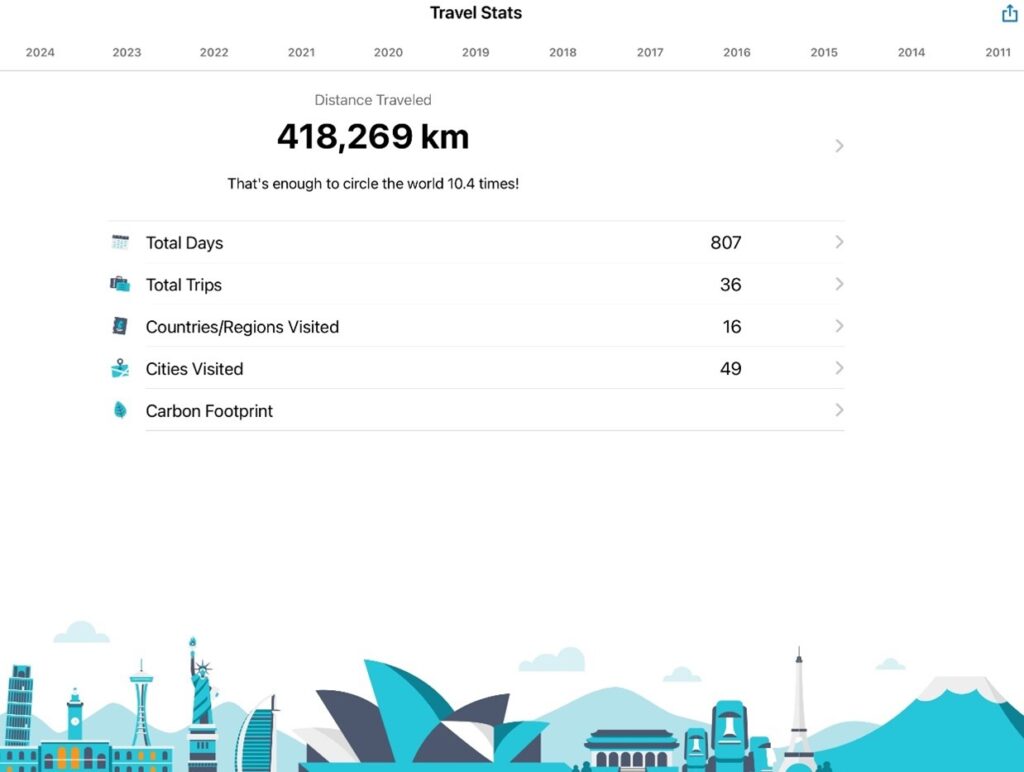
Travel gives us the greatest stories, the most cherished memories, and countless irreplaceable lessons that we can choose to pass on to others. It teaches us about ourselves and each other; it broadens our horizons; and, just like a reset button, it forces us to refocus on what really matters. Travel allows us to step outside of our comfort zones, immerse ourselves in new cultures, and gain a deeper understanding of the world around us. It opens our minds to different perspectives and helps us appreciate the diversity that makes our planet so rich and fascinating.
According to neuroscientists, when we travel, we rewire our brains. This is because new experiences are key to building new neural pathways in the brain. By rewiring your brain, you become more creative and accepting of new ideas. This is why travel makes you happy; it makes me happy. When I joined the Army, they sent me to basic training in Oklahoma, which led to lengthy assignments in Europe and Asia, marking my first travel experience. Once I started, I could not stop, which would eventually culminate in logging over 20 years of travel and achieving a spot on the Million Miles Air Travel Club. Traveling not only broadens your cultural horizons, but it also has a positive impact on your brain health. The more you travel, the more adaptable and resilient your brain becomes, leading to increased happiness and fulfillment in life.
Coming back to the guesthouse is when I met my next-door neighbor, Gregory Johnson, who had joined the Army a mere four months before I did. It was remarkable that we met thousands of miles away from Houston, in Munich, Germany. It was a chance encounter that would change our lives forever. Gregory and I quickly bonded over our shared military experiences and spent the evening swapping stories over drinks at a local beer garden. We discovered that we had both been assigned to the same division; he was in Schweinfurt, part of the 12th Combat Aviation Brigade. The chance encounter in a foreign country brought us closer together, and we ended up becoming better friends. Little did we know that our chance encounter in Munich would lead to a lifelong friendship and shared experiences that would shape our futures in ways we could have never imagined. Gregory continues to reside in Houston, but a debilitating accident some years ago left him partially paralyzed. The last time I saw him was at the Veterans Hospital in Houston a few years ago. The irony lies in the fact that he served as a 68J aircraft armament and missile systems repairer within Army Aviation (Rotary), while I began my career in aviation support in 2008 as a 92F aircraft fueler in the 10th Combat Aviation Brigade. Despite his physical limitations, Gregory continues to maintain a positive attitude and is determined to progress with his recovery. His resilience and optimism are truly inspiring, especially considering the challenges he has faced since his accident.

After serving as Unit Police at the gate, Captain William S. Moore, the Headquarters Battery Commander, asked me to drive for him. In the United States, I had only received a learner’s permit, not a license. Therefore, the supply sergeant, SSG Jackson, had to provide me with a comprehensive driving lesson. I was horrible at driving a standard transmission, but eventually I learned. The most challenging aspect of my assignment was that it was a few months before our semiannual training exercise at the Grafenwoehr Training Area. I made many new friends in HQ, especially the personnel, or S-1 section, to which I was assigned, and the Fire Support Team, or FIST. A 13F Fire Support Specialist, also known as a Forward Observer, is a member of the U.S. Army’s field artillery team who acts as the unit’s eyes. Their primary responsibility is to identify targets and relay that information to artillery units at all levels. They were the best bunch of guys that I ever worked with. They kept them on the top floor of the barracks, separated from the battery, because they were actually attached to 2nd Battalion 39th FA and had missions with the infantry, armor, and artillery.
One specific example of my time at Grafenwoehr was when I had to learn how to operate a radio for the first time during a simulated combat scenario. It was stressful and intimidating at first, but with the help of my first teammates, I quickly got the hang of it and was able to effectively communicate crucial information during our training exercises. This experience not only improved my technical skills but also solidified the close bond I had with my fellow soldiers at HQ. We spent long days in the field, enduring harsh weather conditions and challenging terrain, but the camaraderie and support among us never wavered. The training exercises not only honed our individual abilities but also strengthened our unit as a whole. Working together as a team, we learned to trust and rely on each other, knowing that our lives depended on the seamless communication and coordination of our efforts. Our time at Grafenwoehr was not just about mastering technical skills, but about building lasting friendships and a sense of unity that would carry us through any mission
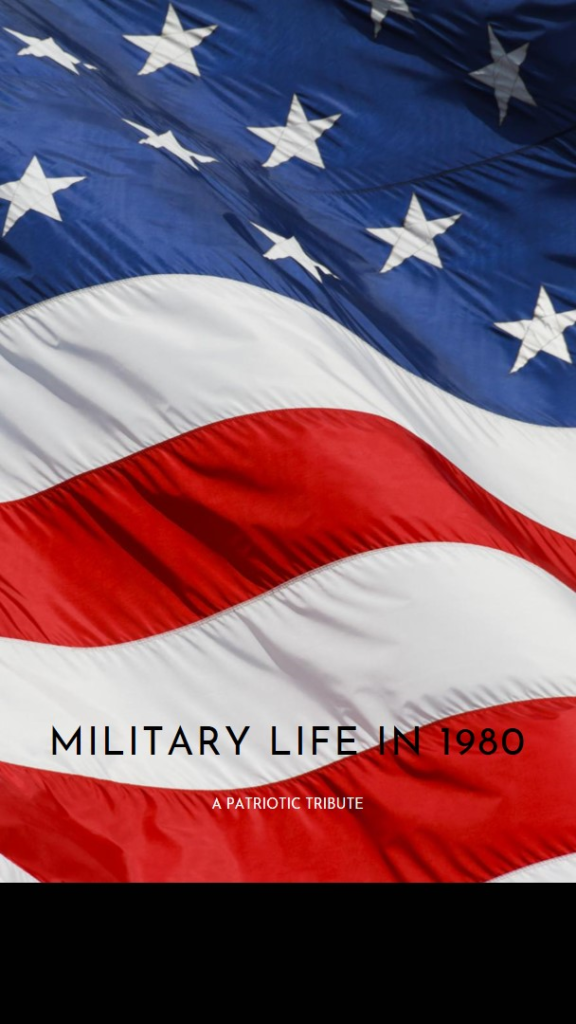
I found out that I had a family member in Germany. Bernard “BB” Johnson was based in Hanau. We met in Hanau, and he took me to a base north of Frankfurt in the city called Mönchengladbach. The British base, known as Mönchengladbach, housed the secretarial pool for the British Army, which was teeming with women. It was one of the most memorable weekends of my young adult single life. It was enjoyable having family in Germany; it made being there a little less lonely. It would be a few years when, all of a sudden, multiple family members were joining the Army, including two of the Army’s most ardent critics. My brother Craig Tyler and my cousin Anthony Allen were both college athletes who were always berating me for joining the Army while at the same time confessing how they would never have done such a thing.
My brother-in-law, Roderick Haynes, and my cousins, Cindy Tyler and Terry Allen, came after them. Once I left for stateside duty, they all received assignments to Germany. This proves that you should never say never. My Louisiana cousin, Peter Joseph, joined the National Guard just in time for Desert Shield and Desert Storm operations in the late 1980s. Whoever said the world is a small place was not kidding. It was in HQ 2-39th FA that I met two M.B. Smiley high school classmates. One of them was named Earnest Visor; he was the older brother of my classmate from MB Smiley High School, Victor Visor. The other person’s name was Carl O’Neil. It has been many years, so the actual first names elude me. It was enjoyable to have people from my hometown with me so far from home. We spent the next few months catching up and reminiscing about our high school days, talking about teachers and classmates we all remembered fondly. It was comforting to have a piece of home with me in this unfamiliar environment. We laughed and shared stories late into the night, creating new memories together in a place we never would have expected to meet up again. It truly demonstrated to me the world’s vastness and incredible interconnectedness, brimming with surprises and connections awaiting discovery.
Being the commander’s driver meant I had to be familiar with all the routes and procedures in order to ensure the safety of everyone on board. I became very proficient in my duties, receiving awards twice for excelling at them. My accomplishments and the trust people placed in me truly filled me with pride. I took my responsibilities very seriously and always made sure to maintain the highest level of professionalism. The bond I formed with my fellow soldiers during this time was unbreakable. Earnest Visor and Carl O’Neal quickly became like brothers to me, and we shared many laughs and memories throughout our time together at HQ. Looking back on those years now, I realize how much I learned about leadership, teamwork, and dedication. It was a challenging but rewarding experience that I will always treasure.
I almost died twice while in Grafenwoehr, the first while on the tank trails at night trying to scout a new location for HQ. The Grafenwoehr Training Area is the largest and most extensive facility used by the U.S. Army. The GTA spans 233 km2, with over 113 km of tank trails and over 241 km of secondary roads. Driving on the tank trails at night can pose a significant risk due to the blackout conditions. The military uses them to drive a convoy at night, reducing enemy visibility and ensuring vehicle concealment. It’s akin to attaching a flashlight to the front of your car to provide light. On several occasions, a tank came dangerously close to ramming me and pushing us over a cliff. The other incident occurred when I contracted walking pneumonia while performing my duties in the field and chose not to seek treatment. Despite being ill and necessitating an airlift to recuperate, I persevered in carrying out my duties. Despite the challenges and perils of being out on the tank trails at night, I was determined to complete my mission and find suitable locations for HQ during field exercises. The close encounters with tanks made me realize the importance of staying alert and cautious at all times. Getting pneumonia was a wake-up call for me to prioritize my health and well-being, even in the midst of demanding military duties.
The experience taught me valuable lessons that I carried with me throughout my time in the field. I learned to always be prepared for the unexpected and never underestimate the dangers of the tank trails, especially at night. It also taught me the importance of taking care of myself, both physically and mentally, in order to perform at my best. Despite the challenges, I emerged from the experience stronger and more resilient, ready to face whatever obstacles came my way in the future.


